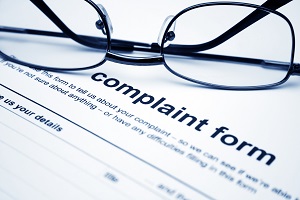Regardless of where you live, conflicts can arise between your residents or HOA board (BOD) members. What makes an HOA successful is their preparation for handling those disputes and solving them promptly. If your HOA board has been struggling with resident and HOA board member issues at your HOA, consider the valuable recommendations below.
Dealing with Homeowners’ Issues at Your HOA
It is normal for any community to run into issues at your HOA. The first step in dealing with these issues is to acknowledge that they exist. Then, as a member of your HOA board of directors, you must take action to ensure these issues do not snowball. By addressing the problem head-on, you can prevent it from spiraling out of control. To do that, keep the following tips in mind:
1. Know the Importance of a Healthy Disagreement
One common misconception is that disagreements are negative. On the contrary, disagreements are healthy if the results are constructive conversations. If the conflict is between two of your board members, then it is best to have them discuss their points. Then, the board can make a final decision where every board member votes.
This way, both board members feel that their voices were heard. If the dispute is between two residents, the HOA board needs to hear both sides of the issue and help the residents to come to a solution. If the residents are happy with the compromise or resolution, it will improve relationships within the community.
2. How to Diffuse an Angry HOA Board Member or Homeowner
 There will be times for any HOA where disagreements arise that are unhealthy.
There will be times for any HOA where disagreements arise that are unhealthy.
Discussions may get heated and cause an angry outburst. There are even cases when neighbors harass each other or harass the board.
These issues at your HOA community can be challenging. The best way to address these HOA issues is to dismiss the board member until they have calmed down.
Another way is to have a standard code of conduct that will force both residents and HOA board members. This will also educate everyone on certain behaviors that are intolerable.
3. Have an HOA Board of Directors Code of Conduct
One of the most dangerous areas to have a conflict is between your HOA board of directors. For this reason, having a separate code of conduct will establish standards from the beginning. If board members forget, it will be possible to remind them to adhere to the original board of directors’ code of conduct to settle disputes.
4. Create Regulations for Meetings
Having time limits at your meetings is vital for productivity and continued cooperation amongst residents. Many HOA board of directors find success in setting a timer to discuss specific issues. This way, members of the board realize that the time they spend in meetings is valuable and effective. If board members begin to feel that meetings are just a waste of time, they will be less motivated to bring positive contributions to the meeting.
5. Have a Formal Complaint Procedure
 Many HOA residents’ issues are a result of confusion related to how to handle complaints. If complaints are not organized, residents may feel that their voices are not heard.
Many HOA residents’ issues are a result of confusion related to how to handle complaints. If complaints are not organized, residents may feel that their voices are not heard.
They will also feel that their objectives are not a priority. It is important to have a standard complaint procedure in place that also tells residents when they should expect a response.
For example, if the system is digital, residents could receive an acknowledgment receipt with an anticipated time of response. Details as small as these assure residents that they truly have somewhere to bring their complaints to.
More than this, homeowners expect the HOA board to be fair when it comes to dealing with violations. If residents do not feel their claims are being valued, they will have less motivation to follow regulations set out by your HOA.
6. Respond to Resident and HOA Board Member Complaints Promptly
Regardless of what kind of complaints your HOA receives, they need to be addressed within at least one week. Granted, during holidays, this period will be longer. Your HOA board of directors must decide the allotted time that it can realistically respond to complaints and make your residents aware of what timeframe they should expect a response.
If you have a larger community, lengthen the response time longer to more than a week if your board cannot handle complaints that quickly. It may also be wise for your HOA board of directors to have a designated committee to manage complaints and pass on the ones that will require more involvement from the entire HOA board of directors.
7. Adding Digital Strategy to Managing Your Community
 Solve homeowners’ issues at your HOA by investing in a digital strategy for your community management.
Solve homeowners’ issues at your HOA by investing in a digital strategy for your community management.
Each HOA board of directors needs to have a serious discussion about how to use technology to their advantage. Based on what the HOA BOD decides, you can offer the filing of complaints, collection of dues, and distribution newsletters — all electronically.
Residents will be more involved and will comply with community regulations if they have a digital email or text message reminding them. Communication is one of the most important keys to a successful community. HOAs that invest in better communication strategies will see a drastic improvement in the resolution of homeowners’ issues at your HOA within their communities.
8. You May Need the Help of Experts
Handling homeowners’ issues at your HOA can be more than a handful to the HOA board of directors. With so many things to think about in running a community, it may be wise to consider outsourcing HOA management services. This way, disputes, and complaints are handled professionally, promptly, and fairly. If you think your community needs help in this matter, don’t hesitate to contact us.
No HOA Is Perfect
You must always keep in mind that every association deals with its fair share of difficulties. Disputes and issues arise on a regular basis, though these are not exactly a sign of failure. Disagreements happen, and they can encourage positive change in your community. The important thing is to know how to deal with these issues at your HOA. By adopting the tips above, you, too, can have a smooth and harmonious community.
Not all associations can effectively deal with disputes and issues, though. If your HOA board is having trouble doing so, it may be time to seek professional help in the form of an HOA management company like us. In that case, feel free to give us a call anytime at (855) 238-8488 or email us at help@emspm.com.
RELATED ARTICLES:
- Dealing With Difficult Homeowners
- HOA Rules and Regulations | What To Know
- 7 Common HOA Misconceptions Explained







